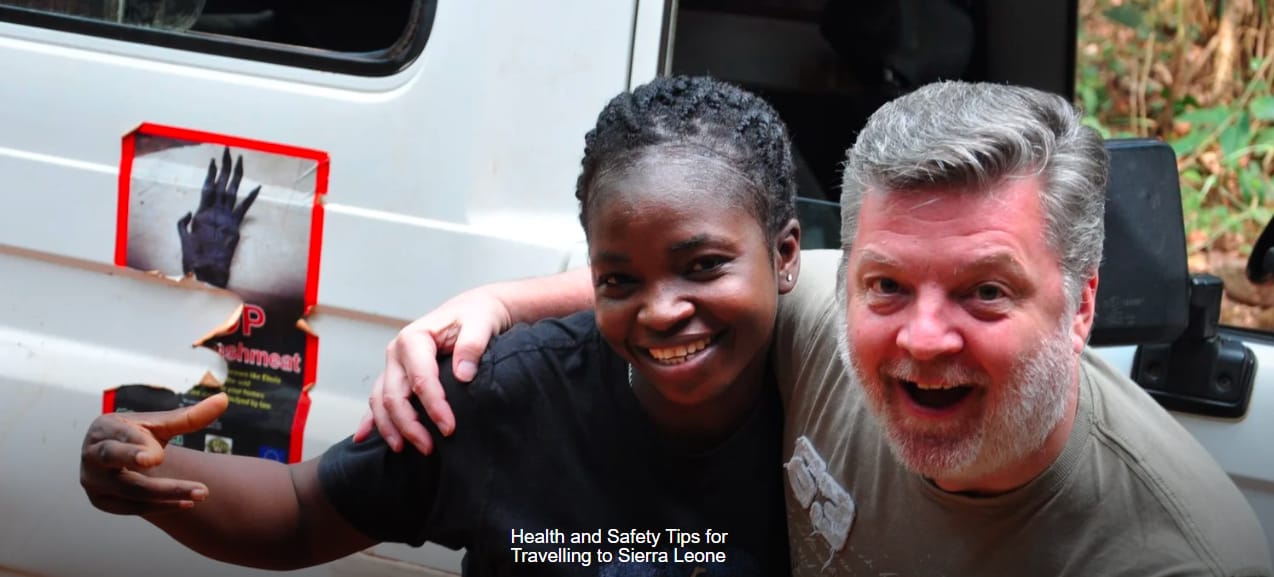This guide is for those whose friends or family may have expressed concerns when they heard you were visiting Sierra Leone. While the country has faced challenges over the years, it’s important to note that the civil war ended in 2002, and Sierra Leone has been Ebola-free since 2016.
With that said, we want to ensure your trip is enjoyable and trouble-free. Stay secure and well with these five must-know health and safety tips for traveling in Sierra Leone.
1. Visit a Travel Clinic
Before embarking on your trip, schedule a visit to a travel clinic. It’s crucial to get up-to-date information on necessary vaccinations. Yellow fever vaccination is mandatory for entering Sierra Leone. Additionally, immunizations for typhoid, hepatitis, and tetanus are recommended but not required.
Malaria is present in Sierra Leone, so you may want to take malaria prophylaxis. Consult a healthcare provider to determine the best preventive measures before your journey.
2. Bring Essential Medication
Ensure you bring all the medication you may need during your stay. Some medicines that are readily available in your home country might be hard to find, particularly in rural parts of Sierra Leone. While Freetown has well-stocked pharmacies and decent hospitals, it’s always safer to carry a supply of your own basic medicines, including any prescription drugs you may be on.
Be prepared for minor ailments by packing over-the-counter medications like pain relievers, anti-diarrheal pills, and any personal health items. This preparation can be a lifesaver in areas where healthcare facilities are limited.
3. Inform Others About Your Travel Plans
For solo travelers or those venturing into less-traveled areas, it’s important to keep others informed of your itinerary. Let your family and friends back home know your travel plans, but also inform your accommodation staff in Sierra Leone, especially if you plan on hiking or exploring remote regions on your own.
Sharing your travel plans ensures someone will be aware of your whereabouts, which can be particularly helpful in case of emergencies or unexpected changes in your itinerary.
4. Avoid Nighttime Driving
Sierra Leone has some well-maintained roads, but many are still underdeveloped. Roads in rural areas may have potholes or lack proper lighting. Additionally, nights in sub-Saharan Africa can be very dark, making visibility on the roads a challenge.
To reduce the risk of accidents, avoid driving at night and try not to use shared taxis or other forms of transport after dark. Most road incidents happen at night, so it’s best to travel during daylight hours whenever possible.
5. Limit Alcohol and Avoid Drugs
This may seem like common sense, but it’s an important tip. Avoid all illegal drugs during your stay, and be mindful of alcohol consumption. While there’s nothing wrong with enjoying a beer at sunset or a glass of wine at dinner, excessive drinking can lead to risky situations.
It’s best to remain aware of your surroundings, especially when traveling in unfamiliar places. Drinking in moderation helps you stay in control and alert, reducing the likelihood of encountering problems.
Final Thoughts
Traveling to Sierra Leone can be a rewarding experience filled with culture, beautiful landscapes, and friendly locals. By taking a few health and safety precautions, you can enjoy your time without worry. Visit a travel clinic for vaccinations, carry essential medication, inform others of your plans, avoid driving at night, and be responsible with alcohol consumption. Following these tips will help ensure you have a safe and memorable trip to Sierra Leone.
Stay in touch to get more news & updates on Gossips.Blog!




